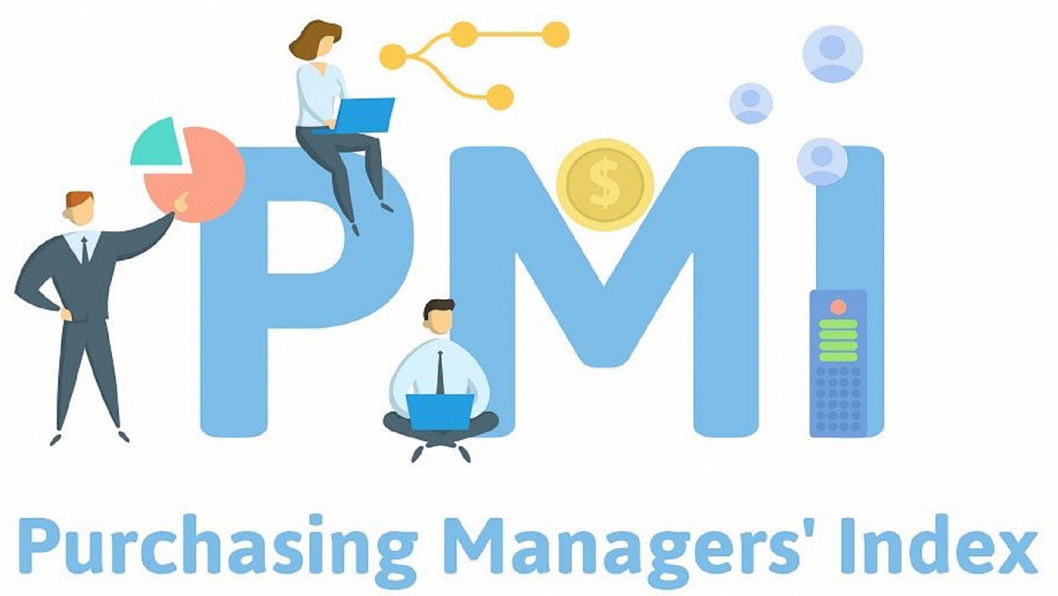Purchasing Managers’ Index launched in Bangladesh

A Purchasing Managers' Index has launched for the first time in Bangladesh today, with data generated by the real-time, data-based early economic indication system set to be published in April.
The PMI is used to gauge the direction of a country's prevailing economic trends in its manufacturing and service sectors.
In essence, the index summarises whether market conditions are expanding, staying the same or contracting, as viewed by purchasing managers.
The index already features data on the December and January months, but it is being preserved internally for fine-tuning before being published, official sources said.
The index will help the private sector identify turning points in the business cycle, closely track key economic variables and get early indications of where the economy is headed.
The Metropolitan Chamber of Commerce and Industry (MCCI) unveiled the PMI in partnership with Policy Exchange Bangladesh (PEB), with support of the UK government's Foreign, Commonwealth, and Development Office (FCDO).
The index is measured within a range of 0 to 100, with a PMI of more than 50 representing expansion compared to the previous month while a reading of under 50 represents contraction.
The PMI is a leading economic indicator that helps provide a picture of a nation's economic health.
The data for the index will be compiled from monthly surveys of private-sector enterprises.
Matt Cannell, acting British High Commissioner and development director to Bangladesh, acknowledged that the country must prepare for forthcoming challenges after graduating from a least developed country (LDC) in 2026.
Many Latin American nations have witnessed low growth and job creation rates after LDC graduation.
So, raising skills, strengthening institutions, and attracting investment are key to overcoming the problem, he said.
By leveraging real-time data and insights from the PMI, Bangladesh will be able to tackle future challenges effectively.
Before concluding, Cannell assured of the UK's continued support for Bangladesh's development pursuits.
MCCI President Kamran T Rahman said the PMI datasets had wide-ranging applications and could be used by various stakeholders.
Citing how it has already been implemented in several nations, Rahman said he believes the PMI could play a key role in sustaining Bangladesh's development trajectory.
Bangladesh has done well in terms of social and economic indicators but struggled to regularly ensure robust data for the private sector, said PEB Chairman M Masrur Reaz.
The index will be available regularly throughout the year. As the PMI provides actionable and quantifiable insights about the economy, it is very useful for stakeholders, he added.
Reaz also believes the index will help improve business and policy decisions in the country.
Hasnat Alam, senior manager of market and policy advisory of the PEB, gave a brief presentation on the fundamentals and practicality of the PMI.
During the open forum, the topics that came up for discussion included the correlation between different variables used in PMI surveys, data reliability, confidentiality and interpretation challenges.

 For all latest news, follow The Daily Star's Google News channel.
For all latest news, follow The Daily Star's Google News channel. 



Comments